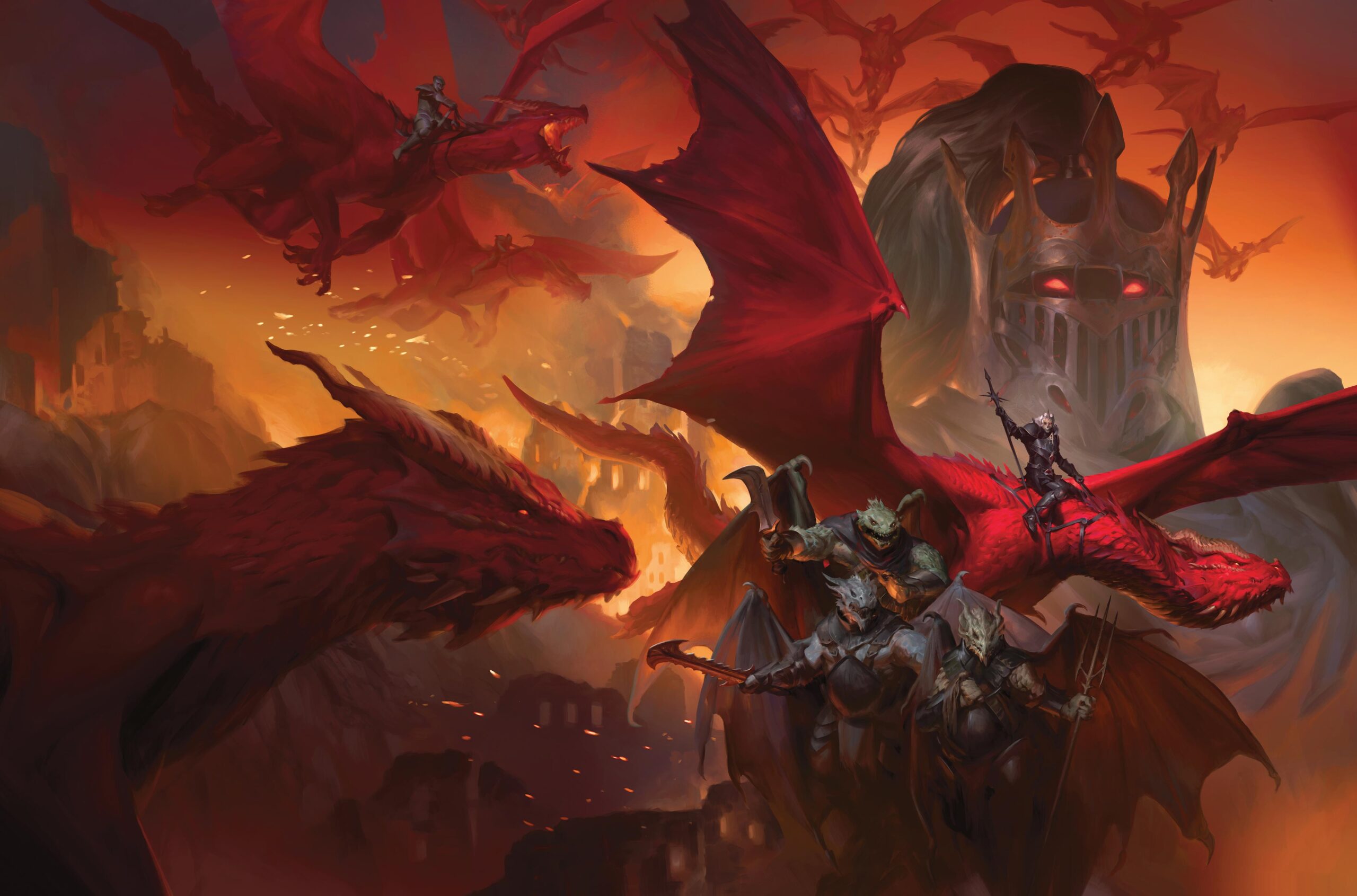Wizards of The Coast Designer Who Authored ‘Dungeons & Dragons – The Making Of Original D&D’ Writes Off Fans Unhappy With Book’s Insulting Of Game’s Creators: “I Consider Those People Not Worth Listening To”

In the latest example of those in charge of a classic nerd hobby proclaiming themselves to be ‘better’ than its long-time fans, Wizards of the Coast designer Jason Tondro has admitted that when writing Dungeons & Dragons – The Making of Original D&D, he did not care that readers may disagree with the books denigration of the game’s original creators because, simply put, he considers anyone who would get upset about it to be “not worth listening to”.

As previously reported, in his book, Tondro spends a decent amount of the book’s text going out of his way to apologize for the fact that the original version of the game was not sufficiently progressive by modern standards, in doing so suggesting that its creators were inherently bigoted themselves.
In one instance, Tondro writes, “Note that the ‘Rules for Fantastic Medieval War-Games Campaigns’ that make up original D&D were created by and sold to a wargaming community that was almost exclusively white, middle-class men.”
“The rules compiled here offer little by way of roles for other players, nor indeed for anyone who wouldn’t easily identify with a pulp sword-and-sorcery hero,” said the designer. “Especially before 1974, the rules made light of slavery, in addition to including other harmful content.”
to answer more than one person who asked what this is referring to: Rob’s rebuttal is in response to the preface message from WOTC in their new book: “The Making of Original Dungeons & Dragons: 1970-1977”. In it, they make claims that the creators of D&D were (insert long list of… pic.twitter.com/ljHAXjAtpn
— Mad Scribe Games LLC (@MadScribeGames) July 9, 2024
Later on, Tondro further warns readers, “Some language in the first iteration of D&D presents a moral quandary. The documents reproduced in this book include many pages of charts and tables alongside lists of monsters, spells, and magic items. But that game content also includes a virtual catalog of insensitive and derogatory language, words that are casually hurtful to anyone with a physical or mental disability, or who happen to be old, fat, not conventionally attractive, indigenous, Black, or a woman.”
“Some people have charitably ascribed this language to authors working from bad assumptions,” he continues. “In the 1970s, historical wargamers in America were predominantly white, middle-class men; it isn’t surprising that they would dub a class of soldiers the ‘fighting-man’. But when, in the pages of [the expansion module] Greyhawk, the description of the Queen of Chatoci Dragons includes a dig at ‘Women’s Lib’, the misogyny is revealed as a conscious choice.”
Further, Tondro asserts, “It’s an unfortunate fact that women seldom appear in original D&D, and when they do, they’re usually portrayed disrespectfully. Slavery appears in original D&D not as a human tragedy that devastated generations over centuries, but as a simple commercial transaction.”

“The cultural appropriation of original D&D ranges from the bewildering (like naming every 6th-level cleric a ‘lama’) to the staggering; [the reference book] Gods, Demigods, and Heroes (not reprinted in this book) includes game statistics for sacred figures revered by more than a billion people around the world,” he then recalls. “Were players expected to fight Vishnu, one of the principal deities of Hinduism, kill him, and loot his ‘Plus 3 sword of demon slaying’?”
Closing out the preface, Tondro ultimately opines, “Despite these shortcomings, D&D has always been a game about people choosing to be someone unlike themselves and collaborating with strangers who become friends. It has slowly become more inclusive, and as the player base has become more diverse, the pool of creators who make the game expanded to include people with a broader range of identities and backgrounds. As these new creators make the game more welcoming, the game has attracted new fans who, in turn, continue to make the game more inclusive. The future of Dungeons & Dragons, here at its fiftieth anniversary, is bright.”

Releasing to store shelves in July, the book’s pot-shotting of D&D‘s original creators recently drew a new round of public attention thanks to its catching the attention of X owner Elon Musk, who in response to Tondro’s words declared “Nobody, and I mean nobody, gets to trash E. Gary Gygax and the geniuses who created Dungeons & Dragons. What the f–k is wrong with Hasbro and WoTC?? May they burn in hell.”

As a result of this newfound attention, in a currently unidentified Facebook group, a reader would inquire with Tondro “Out of curiosity, did you or your team foresee ANY blowback to your comments, potentially? That is, attention from Musk was as unpredictable as it is ludicrous. But was there any sense in advance that this could rub some portion of the fandom the wrong way (though still be worth doing)?”
In turn, Tondro asserted, “Early in the book’s development the marketing team asked me what sort of critiques we should expect and prepare for. And I and the editors agreed the problem was going to be from progressives and people from underrepresented groups who justly took offense at the language of [original] D&D.”
“I didn’t write the preface until late, and I wrote it to address these concerns,” he then revealed in conclusion to his post. “It never occurred to me I’d rouse the ire of the grognards. It’s obvious now that I look back on it, but I just don’t take those critiques seriously even now. I consider those people not worth listening to, so I didn’t anticipate their ‘outrage’.”

More About:Tabletop Games & RPGs
